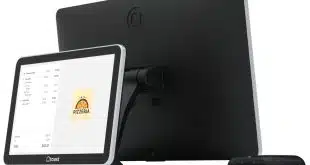Leading payment processor First Data Corp. said on Thursday it would gradually exit the money-order and official-check businesses, a move some analysts see as a landmark in the growth of prepaid cards and electronic bill payment by consumers lacking traditional bank accounts. “Money orders are in big trouble,” says research director Gwenn Bézard of Boston-based Aite Group LLC. Bézard estimates First Data has about 25% of the money-order processing market, a market he sizes at 680 million orders last year with an average value of $110. Aite didn't have estimates for earlier years. A spokesperson for Greenwood Village, Colo.-based First Data says most of the business will be terminated over the next two to three years as contracts come up for renewal. The company in a news release said the move would free up $250 million to $300 million in cash this year that can be put to other uses, including acquisitions or share repurchases. “A strategic review of our official-check and money-order operation highlighted the fact that the business is in a declining market and providing unacceptable returns on both assets and equity,” chairman and chief executive Henry C. “Ric” Duques said in the release. “Accordingly, we are commencing an orderly withdrawal from the business while honoring our commitments to customers.” Analyst Bézard says many consumers with few or no bank accounts now go to walk-in bill-payment centers or check-cashing outlets where they can allocate part of their paychecks for payment of utility or other bills electronically, rather than use money orders as they once did. And rather than use a money order as a savings vehicle for whatever remains of their paychecks after paying the bills, the unbanked are buying prepaid cards to store balances. One company that has been particularly successful in developing this niche, Bézard says, is Austin, Texas-based NetSpend Corp., which offers savings accounts and has distribution agreements with big check-cashing chains and grocery stores. “The rapid development of electronic bill-payment services through walk-in locations, the phone, and the Web has cannibalized the use of money orders for bill payment,” Bézard said in a written statement issued in response to First Data's announcement. “In the meantime, unbanked and underbanked [consumers] are embracing prepaid cards attached to savings accounts, which directly reduce the need for storing money orders in a shoe box at home for short-term savings purposes.” First Data didn't mention the growth of prepaid cards and electronic bill payment in its release, and the spokesperson didn't address the matter when asked about these newer payment forms. Instead, he notes that the money-order and official-check businesses make most of their profits on long-term investments, the value of which can swing widely. First Data's Integrated Payment Systems unit, which includes money orders, official checks, and related payment types, processes more than 1 billion payments worth about $1 trillion annually, though First Data doesn't break out information on the individual payment types. While IPS posted revenues of about $222 million and a profit of $122 million in 2005, according to the spokesperson, net income dropped to $9 million on revenues of $115 million in 2006. And according to First Data's third-quarter report to the Securities and Exchange Commission, IPS's operating margins slipped to a negative 6% for the quarter ended Sept. 30, 2006, compared with a positive 45% a year earlier. “The profit mix from this business is basically investment gains,” he says. “What First Data does is make its money through transaction processing. In one respect it's not core to our business.” Another impetus for the exit was the fact that the contracts of a number of big banks are coming up for renewal in the next couple of years, business representing 60% of portfolio balances. The spokesperson wouldn't comment when asked if First Data considered selling the business rather than phasing it out. One of First Data's money-order clients is wire-transfer leader Western Union Corp., a former subsidiary that First Data spun off last September. The First Data spokesperson says First Data will continue to serve Western Union under terms of its multi-year contract. A Western Union spokesperson didn't return a call from Digital Transactions News.
Check Also
Toast Links Dining to Instacart’s Marketplace; Ingenico Launches Its 360 Platform Plus AXIUM Terminals
Toast Inc. announced early Tuesday it is partnering with online grocery-delivery and-pickup service Instacart to …





